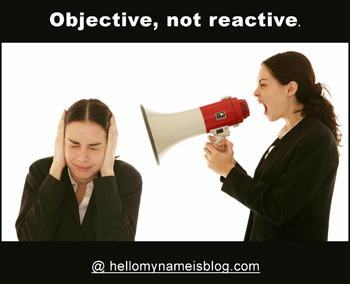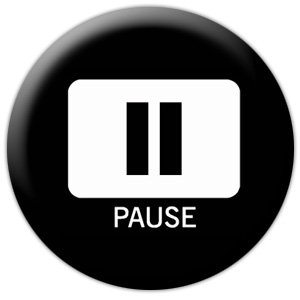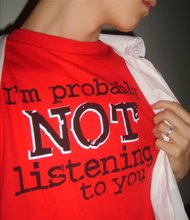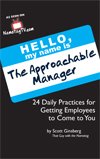
“You did WHAT? Three thousand dollars? Oh my God! Are you freaking CRAZY?!”
– – –
How would you feel if someone reacted that way to YOU?
Maybe a little defensive?
Maybe a little frustrated?
Maybe a little hesitant to open up further?
Right. Of course you would. Who wouldn’t?
This is a typical example of Emotional Reactivity, and it’s a dangerous barrier to Growing Bigger Ears.
See, certain things that people say WILL emotionally activate you. And as a result, you might felt the need to defend yourself, get huffy or even get the uncontrollable urge to yell!
Don’t.
Stay cool, stay calm and stay open.
That’s easy for YOU to say! you think. You’re not the one whose 17 year-old son just crashed the car into the garage door! You’re not the one whose best salesperson just lost the firm’s biggest client!
Fair enough.
But I’m not suggesting you repress your anger or hide your emotions. Instead, challenge yourself to become a better listener by responding emotionally objective, not emotionally reactive.
That means you…
STRIVE TO: pause, not jump.
STRIVE FOR: dialogue, not debate.
STRIVE TO BE: curious, not judgmental.
STRIVE TO APPEAR: observant, not accusatory.
IN SHORT: Objective, not reactive.
Because if you don’t, here are the potential dangers:
Emotional Reactivity is contagious.
Which increases conversational tension.
Emotional Reactivity is disrespectful.
Which is antithetical to the entire philosophy of Growing Bigger Ears.
Emotional Reactivity undermines trust.
Which taints the effectiveness of your listening environment.
Emotional Reactivity blocks understanding.
Which actively interferes with the listening process.
Emotional Reactivity creates defensiveness.
Which decreases the likelihood of someone opening up further.
Emotional Reactivity prevents people from saying what they want to say.
Which means it takes longer to achieve a resolution.
– – –
So, now that you understand the definitions and dangers of Emotional Reactivity, next we’re going explore six practices to help you avoid it.
1. Start with yourself. Before you can effectively listen to others, you must first listen within. Know thyself. To thine own self be true. You know, all of that stuff.
Consider these three questions to pinpoint the triggers of your Emotional Reactivity:
o Where does your emotional reactivity come from?
o What personal biases get in the way of listening effectively?
o When was the last time you listened, all the way through, to an idea that made you uncomfortable?
2. Objective, not reactive. Objectivity is in short supply. So, learn to act in response to the thoughts that fuel your Emotional Reactivity.
For example, if a comment made by an employee stirs up something fierce inside you, just STOP. Consider removing yourself from the situation doing a few exercises to increase oxygen and blood flow.
You could try focused breathing, taking a break or just getting up and walking around. All of these practices will relax your mind and body, thus reducing reactivity.
CAUTION: These relaxation techniques are most effective when carried out in private, so as to reduce the likelihood of coworkers thinking you’re really, really weird.
3. Respond; don’t react. There’s a MAJOR difference between these two words philosophies. See, reactions don’t require thought. They’re knee-jerk reflexes. Responses, on the other hand, are more thought-out. They’re mindful and reflective.
So, it’s important to first recognize that you always have a choice: to either react or respond. To resist the impulse.
Here are four solid questions to ask yourself:
o Why do I feel this way?
o What kinds of things am I reactive to?
o What would be an appropriate way to respond?
o What are the emotional triggers that generate anxiety inside me that prevent me from listening well?
4. Say what you see. Use statements of observation that are non-judgmental, non-comparison based and non-YOU-oriented. Phrases That Payses include:
o “I noticed…”
o “Tell me about…”
o “I wonder if…”
o “How do you feel about…?”
o “Here’s what I observed…”
Comments like these accomplish several goals. First of all, an objective piece of feedback doesn’t challenge someone’s character or attitude. Secondly, it opens the door to discussion. Thirdly, it fosters explanation, not accusation. And lastly, it doesn’t put the other person on the spot for an immediate answer.
5. Conduct internal dialogues. During periods of silence that precede your reactions responses, pay attention to what’s happening inside you while you listen. Consult the Spirits. The Powers That Be. The Muse. The Third Ear.
Or whatever you call it.
Ask yourself NOT, “What do I want to say?” but rather, “What wants to be said next?” and “What’s the next question that wants to be asked?”
Then, wait for your Inner Voice to respond.
– – –
As you can see, Growing Bigger Ears is about a series of CHOICES.
The choice to be objective.
The choice to pause, not jump.
The choice to respond, not react.
The choice to be objective, not reactive.
The choice to conserve your emotional energy.
The choice to replace defensiveness with understanding.
What’s more, because human beings shape their identity by the way others respond to them, your actions play a significant role in the formation of someone’s self-image.
SO REMEMBER:i Objective, not reactive.
Be known as someone who welcomes the truth no matter how disturbing or difficult it might be to hear.
Listen for what the person is trying to communicate AND what they’re actually saying.
After all, it’s awfully hard to Grow Bigger Ears when your Emotional Reactivity is louder than what the other person says.
LET ME ASK YA THIS…
How do you remain emotionally objective?
LET ME SUGGEST THIS…
For a list of 8 non-threatening, objective and inviting Phrases That Payses that demonstrate emotional objectivity, send an email to [email protected] and I’ll hook you up!
* * * *
Scott Ginsberg
That Guy with the Nametag
[email protected]
 Tired of your employees avoiding you?
Tired of your employees avoiding you?
Tune in to The Entrepreneur Channel on NametagTV.com!
Watch video lessons on getting them to come to YOU!

 How many unsolicited referrals did YOU get this week?
How many unsolicited referrals did YOU get this week? 


 The word “emotion” comes from the Latin emotere, which means, “To disturb.”
The word “emotion” comes from the Latin emotere, which means, “To disturb.” What’s YOUR approach?
What’s YOUR approach?
 How many unsolicited referrals did YOU get this week?
How many unsolicited referrals did YOU get this week?  Who’s telling their friends about YOU?
Who’s telling their friends about YOU? 1. They just don’t care.
1. They just don’t care. Is your frontline IN line?
Is your frontline IN line? Growing bigger ears isn’t just about what you DO.
Growing bigger ears isn’t just about what you DO. If they can’t come UP to you; how will they ever get BEHIND you?
If they can’t come UP to you; how will they ever get BEHIND you? “Honey, I got fired this afternoon.”
“Honey, I got fired this afternoon.” Enjoy this post?
Enjoy this post?
 Tired of your employees avoiding you?
Tired of your employees avoiding you? Because acknowledgment is a universal human need, listening is (initially) about AFFIRMATION.
Because acknowledgment is a universal human need, listening is (initially) about AFFIRMATION. Want your employees to open up to you?
Want your employees to open up to you?